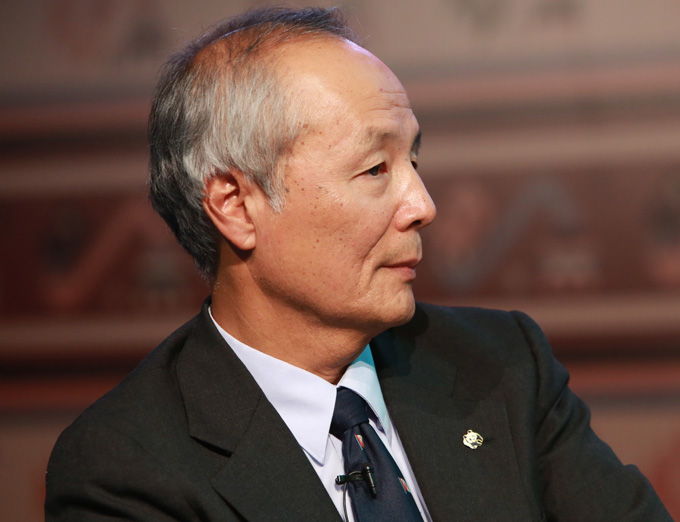
Guest OpEd by Jim Sano
What did people learn about traveling during a pandemic? Their travel insurance did not provide the protection they expected.
Travelers who assumed their trip insurance would reimburse COVID-19-related trip cancellation, interruption, delay, change fees, and health care received during their trips, including testing to return home discovered they were wrong.
“When the pandemic struck, many travel insurance policies failed to cover COVID-19-related trip interruptions and cancellations,” according to a report in The New York Times.
Travel insurance coverage “limitations have been brought into stark relief during the coronavirus pandemic, leaving would-be travelers frustrated over denied claims for hundreds — if not thousands — of dollars,” reported the Chicago Tribune.
“Plane tickets, vacation homes, and other excursions are going uncovered even though some say they couldn’t have reached their destinations because of ski resorts shuttering, beaches closing, and governors urging everyone to stay home.”
Travelers were dismayed to find out trip cancellations would not be covered by their travel insurance.
(Read those travel insurance policies carefully! Amid Coronavirus, many travelers are worried for more reasons than one. Courtesy of The Weather Channel and YouTube. Posted on Mar 11, 2020.)
“[F]ear of contracting the new coronavirus, or COVID-19, is not covered under a standard policy,” according to experts. The U.S. State Department’s warning to reconsider or not travel was also not considered a valid reason.
“These advisories do not invoke coverage for standard travel insurance policyholders if they decide to cancel or change their plans,” reported USA Today.
Some travelers were required to quarantine in hotels at their own expense, while other travel providers, such a cruise lines, covered pandemic-related travel-delay expenses.
“In the case of several cruise ships in East Asia that underwent quarantine, the cruise lines themselves assumed the cost of accommodations. In other situations, individual travelers are responsible for managing their self-quarantine,” reported Time magazine.
However, as NPR reported, “in some countries, ex-pats [were] not eligible to receive care from public health services while private health insurance policies [did] not cover the cost of testing if the test [was] not considered medically necessary.”
The U.S. Federal Trade Commission advised travelers when it was clear the pandemic was a global event to contact travel providers – airlines, cruise ships, hotels, tour operators, and travel agents.
Many providers offered refunds and postponements, and a majority of travelers did not incur cancellation fees.
“As the coronavirus outbreak has disrupted international travel, airlines have offered waivers that allow people to cancel or change their flights without the usual penalty,” reported USA Today.
(The coronavirus pandemic is still impacting travel, and destinations around the world have different COVID-19 restrictions in place. It’s important to check and adhere to local government policies as you’re planning any future trips. Courtesy of BuzzFeed Bring Me and YouTube. Posted on Jun 27, 2020.)
The pandemic raised awareness of the limitations of travel insurance and the value of having a stand-alone medical assistance and evacuation safety net that is not an ordinary, off-the-shelf travel insurance policy.
In short, emergency rescue and evacuation coverage is not travel insurance.
The best memberships include emergency field rescue from the point of illness or injury worldwide.
The costs associated with the emergency ground or air transportation are taken care of, meaning there’s no deductible or co-pay.
Membership in the best programs includes direct traveler assistance to help with local health care systems, visa and passport issues, translation, legal locators, and real-time event alerts.
When the coronavirus spread started, travelers and ex-pats found themselves trapped in an escalating series of government directives and medical orders to contain the sweep of the virus.
Soon, government authorities, public health officials, and travel administrators restricted nearly all flights. The COVID-19 outbreak pushed emergency evacuation membership companies into overdrive to help their members evacuate when international travel restrictions were tightening daily.
The unprecedented circumstances made efforts to return travelers to their homes more challenging.
Only the best emergency evacuation companies successfully helped their members without any disruption of service.
(Proof of vaccination to travel or attend school is not new, but the coronavirus has introduced a potential need to modernize outdated paper standards. Courtesy of The Washington Post and YouTube. Posted on Feb 25, 2021.)
Leadership in the leading emergency evacuation membership companies are wholly committed and employ deeply experienced security, medical, and intelligence personnel to use their collective logistical know-how, bureaucratic fluency, and relentless focus to help return individuals home.
Travelers must know the difference between travel insurance and emergency evacuation services.
An emergency requiring rescue or an evacuation can happen at any time. Travelers should fully understand what options are available.
It is equally crucial for travelers to know that emergency rescue and evacuation membership services are not only for pandemics, rather it’s essential for any traveler for any emergency, whether it’s due to a natural disaster, civil unrest, or simply needing emergency help when you’re traveling.

About the Author
Jim Sano is the former president of Geographic Expeditions, a Yosemite Park Ranger, and senior advisor for Global Rescue, a world leading medical, security, evacuation, and travel risk management provider for services enterprises governments, and individuals.
Global Rescue has been a leader and pioneer in the travel services industry since our founding in 2004, providing integrated medical, security, travel risk and crisis management services available anywhere, delivered by their teams of critical care paramedics, physicians, nurses and military special operations veterans.
(Hear from Jim Gildea is the father of US Ski Team member Eddie Gildea about Global Rescue Emergency Evacuation. When Eddie was hurt far from home, Global Rescue stepped in and provided Jim with the peace of mind he desperately needed. Courtesy of Global Rescue and YouTube. Posted on Oct 17, 2016.)
The company’s medical advisory and evacuation services include exclusive relationships with the Johns Hopkins Department of Emergency Medicine Division of Special Operations, Elite Medical Group and Partners HealthCare.
Global Rescue’s track record has made them a chosen provider to government agencies and some of the world’s largest companies, universities, nonprofits and tour operators.
Their mission is simple – to be there when it matters most.
(Learn More about Global Rescue for medical evacuation, security extraction, crisis response. Courtesy of Global Rescue and YouTube.)
AST strives to meet a 3 STAR trustworthiness rating, based on the following criteria:
- Provides named sources
- Reported by more than one notable outlet
- Includes supporting video, direct statements, or photos
















